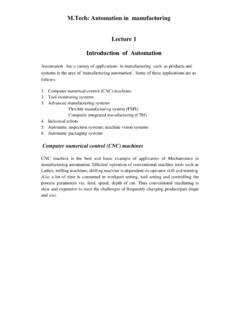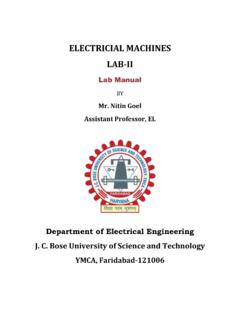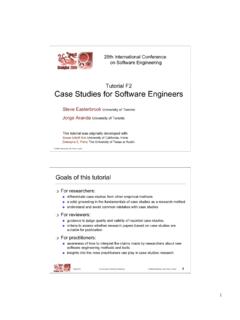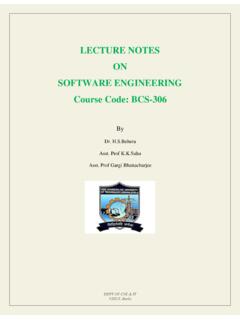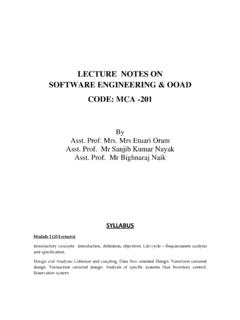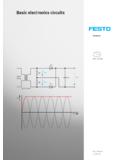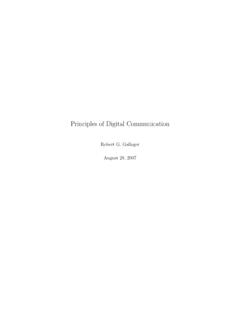Transcription of BASIC ELECTRICAL ENGINEERING
1 BASIC ELECTRICAL ENGINEERING LAB MANUAL Prepared By Ms. SHIPRA JAIN ASSISTANT PROFESSOR Department Of ELECTRICAL Engg., JCB University of Science and Technology, YMCA Faridabad, Haryana VISION OF THE DEPARTMENT ELECTRICAL ENGINEERING Department congregates the challenges of new technological advancements to provide comprehensively trained, career focussed , morally strong accomplished graduates,cutting edge researchers by experimental learning which contribute to ever changing global society and serve as competent engineers. MISSION OF THE DEPARTMENT To commit excellence in imparting knowledge through incubation and execution of high quality innovative educational programs.
2 To develop the Research oriented culture to build national capabilities for excellent power management. To inculcate and harvest the moral values and ethical behaviour in the students through exposure of self -discipline and personal integrity. To develop a Centre of Research and Education generating knowledge and technologies which lay ground work in shaping the future in the field of ELECTRICAL ENGINEERING . PROGRAM EDUCATIONAL OBJECTIVES (PEOs) To produce competent ELECTRICAL ENGINEERING graduates with a strong foundation design, analytics and problem solving skills for successful professional careers in industry, research and public service. To provide a stimulating research environment so as to motivate the students for higher studies and innovation in the specific and allied domains of ELECTRICAL ENGINEERING .
3 To encourage the graduates to practice the profession following ethical codes, social responsibility and accountability. To train students to communicate effectively in multidisciplinary environment. To imbibe an attitude in the graduates for life-long learning process. PROGRAM OUTCOMES (POs) ENGINEERING Graduates will be able to: 1. Apply the knowledge of mathematics, science, ELECTRICAL ENGINEERING fundamentals, and an ELECTRICAL ENGINEERING specialization to the solution of complex ELECTRICAL ENGINEERING problems. 2. Identify, formulate, review research literature, and analyze complex ELECTRICAL ENGINEERING problems reaching substantiated conclusions using first principles of mathematics, natural sciences, and ENGINEERING sciences.
4 3. Design solutions for complex ELECTRICAL ENGINEERING problems and design system components or processes that meet the specified needs with appropriate consideration for the public health and safety, and the cultural, societal, and environmental considerations. 4. Use research-based knowledge and research methods including design of experiments, analysis and interpretation of data, and synthesis of the information to provide valid conclusions. 5. Create, select, and apply appropriate techniques, resources, and modern ENGINEERING and IT tools including prediction and modelling to complex ELECTRICAL ENGINEERING activities with an understanding of the limitations. 6. Apply reasoning informed by the contextual knowledge to assess societal, health, safety, legal and cultural issues and the consequent responsibilities relevant to the professional ENGINEERING practice.
5 7. Understand the impact of the professional ELECTRICAL ENGINEERING solutions in societal and environmental contexts, and demonstrate the knowledge of, and need for sustainable development. 8. Apply ethical principles and commit to professional ethics and responsibilities and norms of the ENGINEERING practice. 9. Function effectively as an individual, and as a member or leader in diverse teams, and in multidisciplinary settings. 10. Communicate effectively on complex ENGINEERING activities with the ENGINEERING community and with society at large, such as, being able to comprehend and write effective reports and design documentation, make effective presentations, and give and receive clear instructions.
6 11. Demonstrate knowledge and understanding of the ENGINEERING and management principles and apply these to one s own work, as a member and leader in a team, to manage projects and in multidisciplinary environments. 12. Recognize the need for, and have the preparation and ability to engage in independent and life-long learning in the broadest context of technological change. PROGRAM SPECIFIC OUTCOMES (PSOs) 1. To impart State-of-Art knowledge in the field of ELECTRICAL ENGINEERING and hand on application based practical training with regular Academic and Industry interaction. 2. To incorporate research environment and innovation projects towards assimilation of global technology in order to meet needs of automation and articulate a higher education system of ethics and mind set for a realistic education.
7 Course Outcomes: The students are expected to 1. Get an exposure to common ELECTRICAL components and their ratings and understand the usage of common ELECTRICAL measuring instruments. 2. Different Network theorems for dc circuits. 3. Resonance in RLC circuits 4. Transients in RL and RC transients. 5. Understand the BASIC concept of transformers and ELECTRICAL machine LIST OF EXPERIMENTS HARDWARE EXPERIMENTS To verify KCL and KVL To verify Thevenin's theorem. To verify Norton s theorem. To verify Super position theorem. To study frequency response of series RLC circuit and determine resonance frequency. To study frequency response of parallel RLC circuit and determine resonance frequency.
8 To verify the transient response of series R-L circuit. To verify the transient response of series R-C circuit. To find the polarity and turns ratio of a single phase Transformer. To perform speed control of dc motor by armature voltage control. To perform speed control of dc motor by field current control. STUDY EXPERIMENTS Introduction to real-life resistors, capacitors and inductors. Introduction and use of measuring instruments voltmeter, ammeter, multi-meter, oscilloscope. To study the constructional features and working of three phase Induction motor. To study the constructional features and working of DC motor. To study the constructional features and working of Synchronous generator.
9 INDEX EXPERIMENT Page No. Signature PRECAUTIONS 1. There must be at least two (2) people in the laboratory while working online circuits. 2. Shoes must be worn at all times. 3. Remove all loose conductive jewellery and trinkets, including rings, which may come in contact with exposed circuits. (Do not wear long loose ties, scarves, or other loose clothing around machines.) 4. Consider all circuits to be "hot" unless proven otherwise. 5. When making measurements, form the habit of using only one hand at a time. No part of a live circuit should be touched by the bare hand. 6. Keep the body, or any part of it, out of the circuit. Where interconnecting wires and cables are involved, they should be arranged So that anyone can verify them.
10 7. Be as neat a possible. Keep the work area and workbench clear of items not used in the experiment. 8. Always check to see that the power switch is OFF before plugging into the outlet. Also, turn instrument or equipment OFF before unplugging from the outlet. 9. When unplugging a power cord, pull on the plug, not on the cable. 10. When disassembling a circuit, first remove the source of power. 11. No ungrounded ELECTRICAL or electronic apparatus is to be used in the laboratory unless it is double insulated or battery operated. 12. Report any damages to equipment, hazards, and potential hazards to the laboratory instructor. 13. Regarding specific equipment, student should read the instruction manual provided by the manufacturer of the equipment and consult with teacher.

